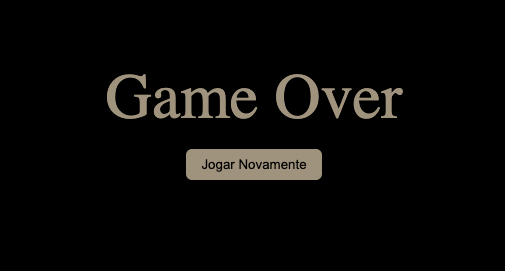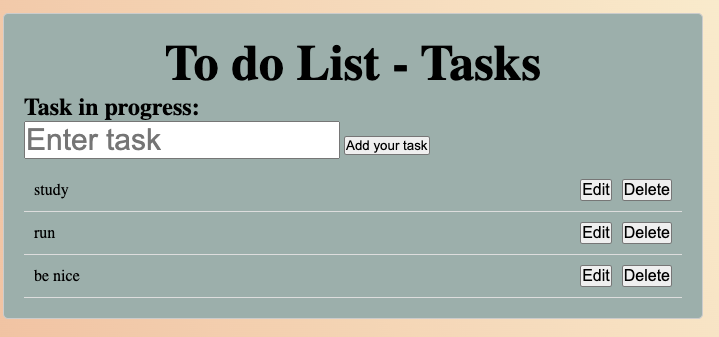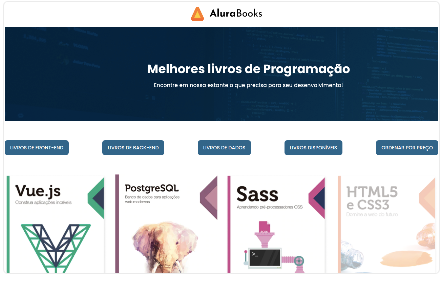Enthusiastic Data Analyst and Front-end Developer with a passion for transforming information into insights — driven by curiosity, creativity, and a love for learning. Balanced by surfing, the sea, and a healthy lifestyle.

Skills
Projects

Cleaning WebSite - WorldPress
I created a sleek, user-friendly cleaning services website using WordPress. The site includes service details, client testimonials, and a contact form. Designed for both desktop and mobile, it incorporates responsive design and SEO best practices, showcasing my skills in WordPress development and creating functional, attractive websites.

JavaScript Number Guessing Game
I developed an interactive number guessing game using JavaScript and the Web Speech API for voice recognition. Players guess a secret number, receiving hints if their guess is too high or too low. A special “Game Over” feature and a restart button enhance the experience. This project showcases my JavaScript skills and ability to create engaging web applications.

JAVASCRIT
Built on WordPress, this responsive site features bilingual support, WhatsApp integration, striking visual effects, and a sleek night mode.
WordPress
Built on WordPress, this responsive site features bilingual support, WhatsApp integration, striking visual effects, and a sleek night mode.

HTML & CSS
Constructed solely with HTML and CSS, this project represents my inaugural website designed for a business based in Brazil.

JavaScript
Developed using JavaScript and following a tutorial, this project utilizes array methods, the localStorage API, DOM element manipulation, as well as the Slice, Splice and Some methods.

JavaScript
Developed using JavaScript, this project leverages array methods, APIs, JSON, filters, asynchronous functions, and forEach loops to deliver robust functionality.
The Importance of Creating Your Own Projects to Accelerate Learning

In the ever-evolving world of web development, one of the most effective ways to solidify your knowledge and improve your skills is by creating your own projects. While tutorials and courses provide a structured learning path, there is immense value in stepping outside the predefined exercises and building something from scratch. Here’s why creating your own projects is crucial for your growth as a web developer.
1. Practical Application of Knowledge
When you create your own projects, you move beyond theoretical knowledge and start applying what you’ve learned in real-world scenarios. This practical application helps you understand how different concepts and technologies work together to create functional, user-friendly applications. It bridges the gap between learning and doing, reinforcing your understanding and helping you retain information longer.
2. Problem-Solving Skills
Building your own projects inevitably leads to encountering challenges and roadblocks. These challenges force you to think critically and develop problem-solving skills. Whether it’s debugging code, figuring out how to implement a feature, or optimizing performance, each problem you solve enhances your ability to think logically and creatively.
3. Deepening Technical Knowledge
Creating projects often requires you to dive deeper into the technologies you’re using. You’ll find yourself researching best practices, exploring advanced features, and learning about new tools and libraries. This deeper dive into the technical aspects not only broadens your knowledge but also makes you more proficient in using the tools of your trade.
4. Building a Portfolio
One of the most tangible benefits of creating your own projects is building a portfolio. A portfolio showcases your skills and projects to potential employers or clients, demonstrating your ability to build real-world applications. It serves as concrete evidence of your capabilities and can significantly boost your job prospects or freelance opportunities.
5. Understanding Project Workflow
Working on your own projects helps you understand the end-to-end workflow of web development, from planning and designing to coding, testing, and deployment. You’ll learn how to manage your time, organize your tasks, and follow development best practices. This comprehensive understanding is crucial for working effectively in a team or managing larger projects.
6. Cultivating Creativity
When you’re building your own projects, you have the freedom to experiment and innovate. This creative freedom allows you to explore new ideas, design unique solutions, and push the boundaries of what’s possible. Cultivating creativity not only makes the learning process more enjoyable but also helps you develop a distinctive style and approach to problem-solving.
7. Staying Motivated
Working on projects that interest you keeps you motivated and engaged. Unlike following a tutorial, where the end goal is predetermined, creating your own projects gives you a sense of ownership and accomplishment. Seeing your ideas come to life and knowing that you’re building something meaningful can be incredibly motivating and rewarding.
8. Learning How to Learn
The process of creating your own projects teaches you how to learn independently. You’ll develop the habit of researching, experimenting, and seeking out resources to solve problems. This ability to learn on your own is invaluable in the fast-paced tech industry, where new technologies and frameworks emerge regularly.
Getting Started with Your Own Projects
Start Small: Begin with small, manageable projects that align with your current skill level. As you gain confidence, gradually tackle more complex projects.
Build What Interests You: Choose projects that excite you and align with your interests. This will keep you motivated and engaged throughout the process.
Document Your Journey: Keep track of your progress, challenges, and solutions. This documentation can be a valuable resource for future reference and a great addition to your portfolio.
Seek Feedback: Share your projects with others and seek feedback. Constructive criticism can provide new insights and help you improve your work.
Iterate and Improve: Don’t be afraid to revisit and improve your projects. Continuous iteration will refine your skills and result in higher-quality applications.
Conclusion
Creating your own projects is a powerful way to accelerate your learning and growth as a web developer. It provides practical experience, enhances problem-solving skills, deepens technical knowledge, and builds a strong portfolio. By taking ownership of your learning journey and building real-world applications, you’ll not only become a more proficient developer but also cultivate a passion for continuous learning and innovation. So, take the plunge, start building, and watch your skills soar!
Contact
Get in touch to discuss opportunities, collaborations, or to learn more about my skills and experience. I’m eager to connect and explore how I can contribute to your team.
The Importance of Creating Your Own Projects to Accelerate Learning

In the ever-evolving world of web development, one of the most effective ways to solidify your knowledge and improve your skills is by creating your own projects. While tutorials and courses provide a structured learning path, there is immense value in stepping outside the predefined exercises and building something from scratch. Here’s why creating your own projects is crucial for your growth as a web developer.
1. Practical Application of Knowledge
When you create your own projects, you move beyond theoretical knowledge and start applying what you’ve learned in real-world scenarios. This practical application helps you understand how different concepts and technologies work together to create functional, user-friendly applications. It bridges the gap between learning and doing, reinforcing your understanding and helping you retain information longer.
2. Problem-Solving Skills
Building your own projects inevitably leads to encountering challenges and roadblocks. These challenges force you to think critically and develop problem-solving skills. Whether it’s debugging code, figuring out how to implement a feature, or optimizing performance, each problem you solve enhances your ability to think logically and creatively.
3. Deepening Technical Knowledge
Creating projects often requires you to dive deeper into the technologies you’re using. You’ll find yourself researching best practices, exploring advanced features, and learning about new tools and libraries. This deeper dive into the technical aspects not only broadens your knowledge but also makes you more proficient in using the tools of your trade.
4. Building a Portfolio
One of the most tangible benefits of creating your own projects is building a portfolio. A portfolio showcases your skills and projects to potential employers or clients, demonstrating your ability to build real-world applications. It serves as concrete evidence of your capabilities and can significantly boost your job prospects or freelance opportunities.
5. Understanding Project Workflow
Working on your own projects helps you understand the end-to-end workflow of web development, from planning and designing to coding, testing, and deployment. You’ll learn how to manage your time, organize your tasks, and follow development best practices. This comprehensive understanding is crucial for working effectively in a team or managing larger projects.
6. Cultivating Creativity
When you’re building your own projects, you have the freedom to experiment and innovate. This creative freedom allows you to explore new ideas, design unique solutions, and push the boundaries of what’s possible. Cultivating creativity not only makes the learning process more enjoyable but also helps you develop a distinctive style and approach to problem-solving.
7. Staying Motivated
Working on projects that interest you keeps you motivated and engaged. Unlike following a tutorial, where the end goal is predetermined, creating your own projects gives you a sense of ownership and accomplishment. Seeing your ideas come to life and knowing that you’re building something meaningful can be incredibly motivating and rewarding.
8. Learning How to Learn
The process of creating your own projects teaches you how to learn independently. You’ll develop the habit of researching, experimenting, and seeking out resources to solve problems. This ability to learn on your own is invaluable in the fast-paced tech industry, where new technologies and frameworks emerge regularly.
Getting Started with Your Own Projects
Start Small: Begin with small, manageable projects that align with your current skill level. As you gain confidence, gradually tackle more complex projects.
Build What Interests You: Choose projects that excite you and align with your interests. This will keep you motivated and engaged throughout the process.
Document Your Journey: Keep track of your progress, challenges, and solutions. This documentation can be a valuable resource for future reference and a great addition to your portfolio.
Seek Feedback: Share your projects with others and seek feedback. Constructive criticism can provide new insights and help you improve your work.
Iterate and Improve: Don’t be afraid to revisit and improve your projects. Continuous iteration will refine your skills and result in higher-quality applications.
Conclusion
Creating your own projects is a powerful way to accelerate your learning and growth as a web developer. It provides practical experience, enhances problem-solving skills, deepens technical knowledge, and builds a strong portfolio. By taking ownership of your learning journey and building real-world applications, you’ll not only become a more proficient developer but also cultivate a passion for continuous learning and innovation. So, take the plunge, start building, and watch your skills soar!

